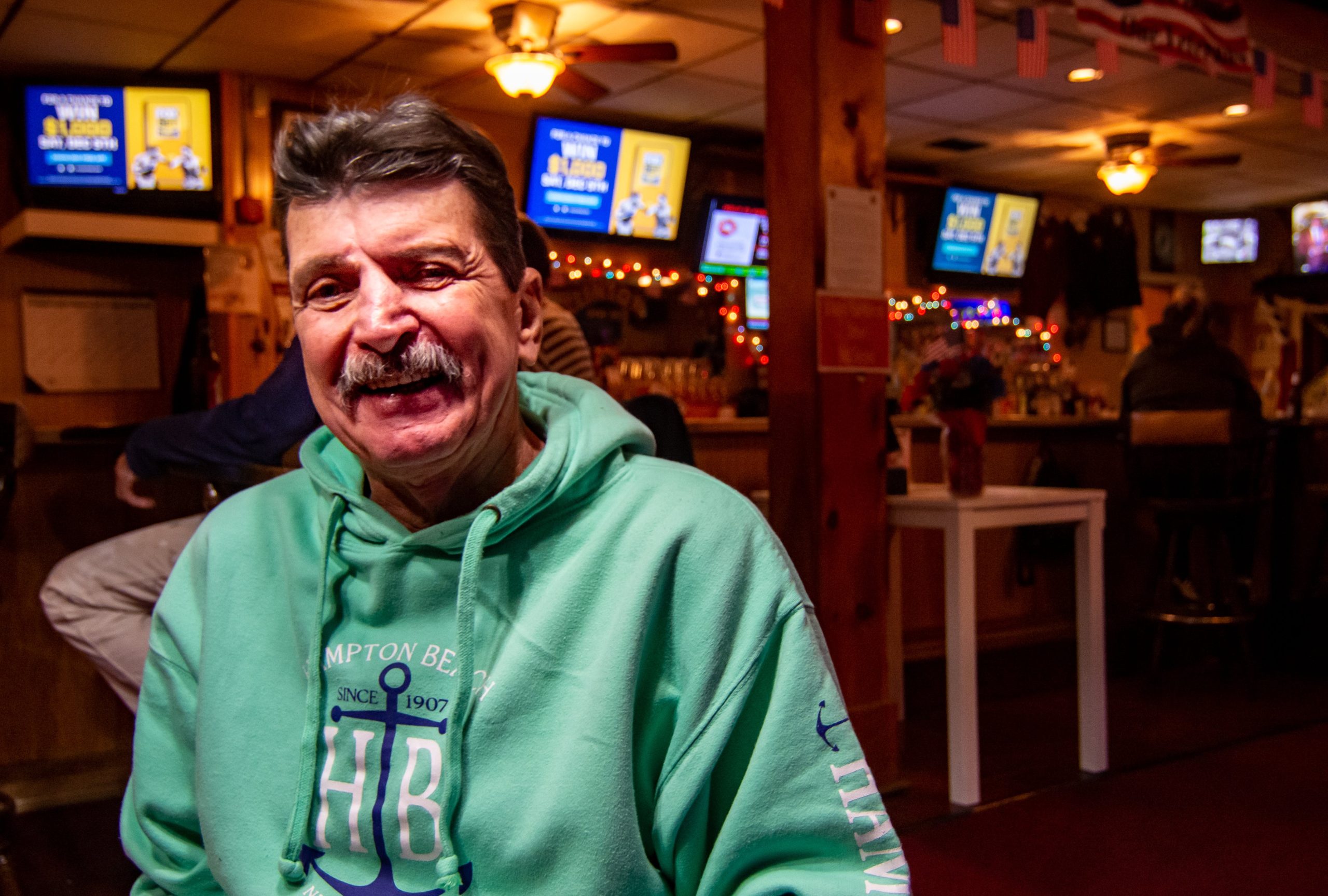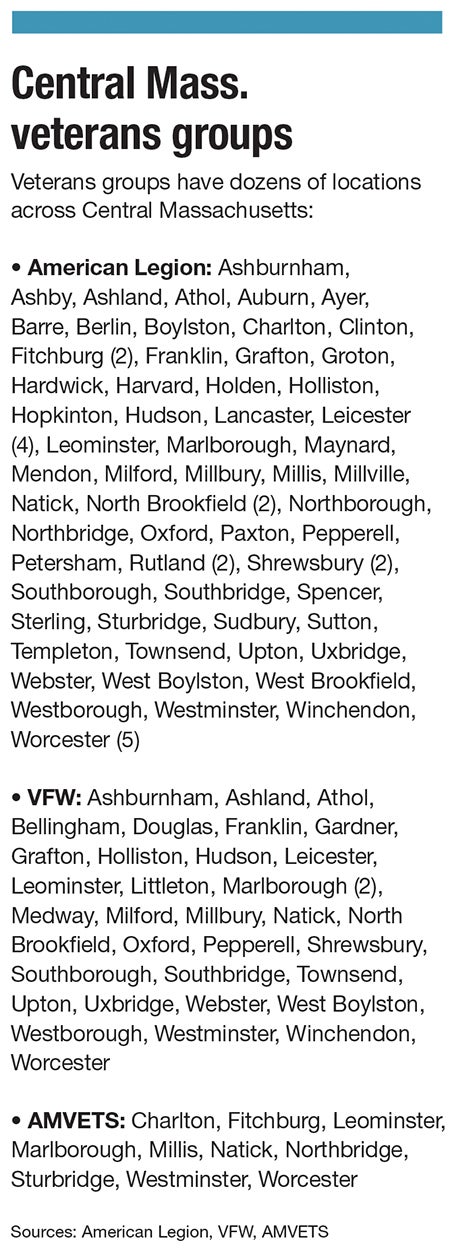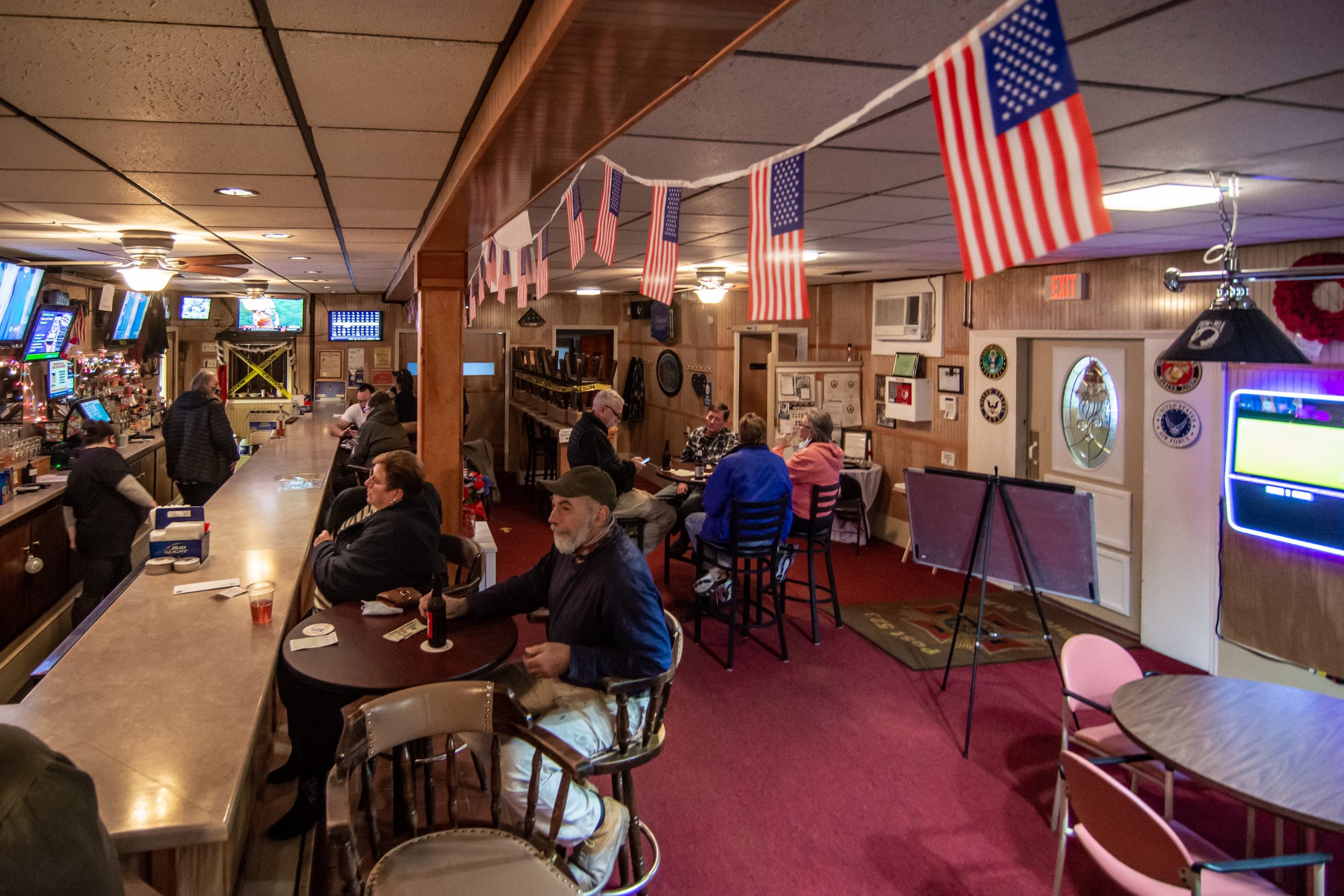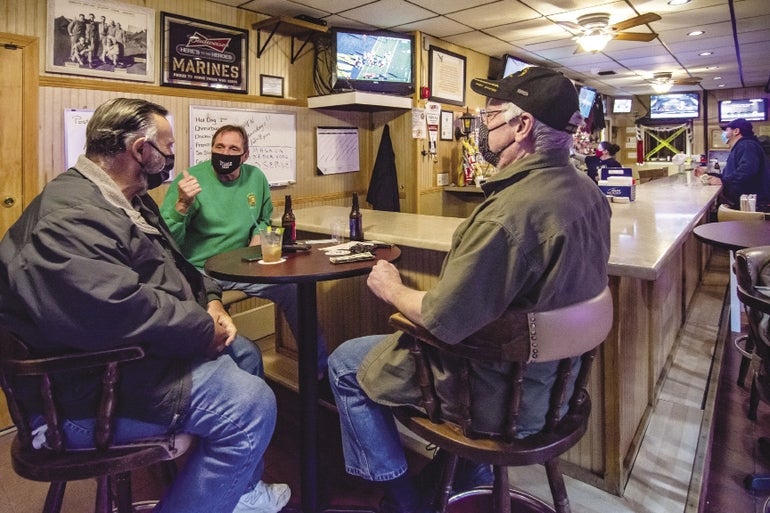Long before the coronavirus pandemic hit, veterans services groups were facing a deep demographic challenge: Far fewer young vets have been interested in joining their local VFW, American Legion or other post.
Get Instant Access to This Article
Subscribe to Worcester Business Journal and get immediate access to all of our subscriber-only content and much more.
- Critical Central Massachusetts business news updated daily.
- Immediate access to all subscriber-only content on our website.
- Bi-weekly print or digital editions of our award-winning publication.
- Special bonus issues like the WBJ Book of Lists.
- Exclusive ticket prize draws for our in-person events.
Click here to purchase a paywall bypass link for this article.
Long before the coronavirus pandemic hit, veterans services groups were facing a deep demographic challenge: Far fewer young vets have been interested in joining their local VFW, American Legion or other post.
Add a public health crisis, and these groups are now struggling with a triple whammy of sorts. It’s far harder – and riskier – for them to gather in person, and for those with their own spaces to rent out, family gatherings or community events that used to bring in a chunk of revenue are all but impossible.
“It’s a challenge for everyone in the veterans clubs,” said Ray Samko, the adjutant and past commander of the American Legion Post 435 in the Vernon Hill section of Worcester.
Longstanding challenges
Veterans groups have long been struggling with an aging demographic, with Korean- and Vietnam War-era veterans far less likely to be joined by their younger counterparts, particularly those who may have served in Afghanistan or Iraq.
Of the more than 330,000 veterans in Massachusetts, 57% are 65 or older, according to the U.S. Department of Veterans Affairs. Less than 10% are 34 or younger. The state’s veteran population declines by more than 3% every year, and within two decades is expected to shrink to about 120,000, according to the VA.

The major veterans groups have generally had shrinking membership.
American Legion had almost 2.3 million members in 2013, and below 2 million today, and the number of posts have shrunk from 14,000 to 12,000.
The VFW has about 1.1 million members, with 2019 snapping a 27-year streak of declining membership. It remains about 1 million below its peak in 1992.
Still, these veterans posts are ubiquitous. In Central Massachusetts alone, the American Legion has 73 locations. The VFW has 34, and AMVETS has 10.
Post leaders don’t hide frustration that younger veterans don’t share their enthusiasm for gathering in the same way.

“Younger kids, they don’t pay attention. They don’t want to join,” said Tommy “Calvin” Coolidge, the commander of the VFW Post 523 in Clinton and a Vietnam veteran. “It’s a shame.
“You can’t do nothing about it,” he added. “If they don’t want to join, they don’t want to join.”
Interests among veterans have shifted across generations, said Christian Appy, a history professor at UMass Amherst.
“A lot of younger, post-9/11 veterans are not attracted to the older, conventional veterans organizations like the VFW and American Legion,” said Appy, the author of three books about the Vietnam War.
Instead, he said, they’re more likely to be interested in groups focusing more on policies or activities they find more relevant to their experience and political positions: like Iraq and Afghanistan Veterans of America, Student Veterans of America, or Team Red, White & Blue. Appy doesn’t think the growth of those nonprofits, or the decline in membership at their older counterparts, means the established groups will go away. Of those, only one – Student Veterans of America – has a chapter in Central Massachusetts.

“Some predicted their collapse in the years after the Vietnam War, when many Vietnam veterans felt unwelcome and proceeded to form their own organizations, such as Vietnam Veterans of America,” Appy said. “And yet, over time, a considerable number of older Vietnam veterans began joining the older, established clubs and now constitute their leadership.”
Pandemic takes a toll
Post leaders say they serve a valuable purpose for veterans: a place to gather, enjoy some camaraderie and support one another, among a group of people who share the experience of serving in the military. That’s especially true for those who saw combat and whose potential life-or-death experiences can’t be understood by anyone who wasn’t in a similar situation.
“That’s a challenge there,” said Dennis Zifcak, a Vietnam veteran who comes from a military family.
Zifcak himself was in the U.S. Army, one brother a Marine and another in the U.S. Air Force. Their dad fought in World War II.
“You don’t have the synergy of a meeting,” Zifcak said of trying to keep in touch during the pandemic. Normally, he said, after a meeting, members would grab a drink or play pool.
“It’s a challenge now because we have to do Zoom meetings,” he said, describing an older group of members who might not have the know-how or interest in meeting up virtually.
Pandemic public safety regulations have taken a toll, too. Like any other public place, veterans halls have been restricted by how large a gathering they can have, depending on whether they’re licensed as essentially a restaurant, whether they have a bar, or large spaces for meetings. Indoor gatherings are limited to 25 people, crimping any ability to hold revenue-generating gatherings.
“It took me a couple months to get the place open,” said Coolidge, who runs the Clinton VFW post.

At the Vernon Hill American Legion post, tables in the lounge are set 6 feet apart, and all patrons have to remain seated.
“We’re doing alright,” said Samko, the post’s adjutant.
The pandemic has left a mark in less tangible ways, too.
The Veterans’ Services office in Worcester City Hall, for example, has shifted abruptly away from in-person appointments, instead preferring phone, email, video call or even mail or fax. Its staff would normally be an active presence at events such as for Veterans Day but has prioritized keeping everyone safe with the pandemic, said Alex Arriaga, the city’s director of veterans services and an Iraqi combat veteran for the Army National Guard.
“We don’t want to put them in a situation where they’re going to be exposed,” Arriaga said of veterans, particularly the older cohort.
Veterans Inc., a Worcester group, stayed open throughout the pandemic as an essential business.
"Veterans Inc., now more than ever, will continue its mission and live up to our motto, which is 'They were there when we needed them, we must be there now that they need us,'" said Daniel Fuentes, the agency's veteran home repairs program manager.
To Arriaga, many have essentially shrugged off the pandemic as simply yet another challenge in their lives.
“Some people are frustrated, but the veteran community has gone through a lot of hardships through their lives,” he said. “Although it’s challenging, what gives me hope is that many will say ‘This is tough, but we’ve been through tougher.’”

